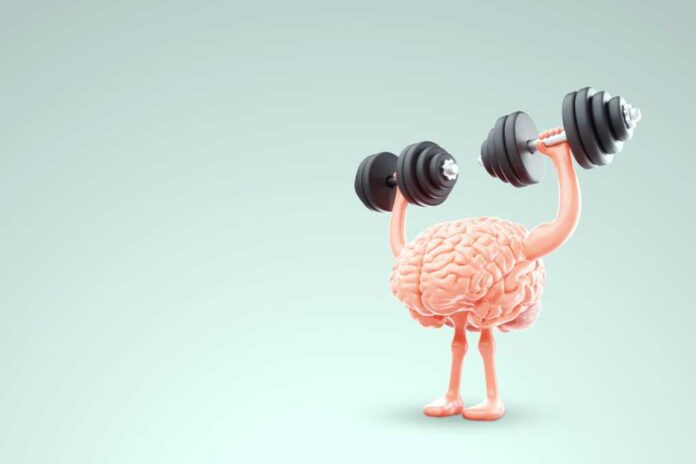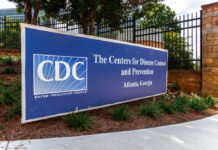
A groundbreaking study involving over 258,000 participants reveals that nearly any form of exercise, even low-intensity activities like walking or yoga, can significantly enhance brain function and memory across all ages within just 1-3 months of regular activity.
At a Glance
- Low to moderate-intensity exercises like yoga, Tai Chi, and exergames provide substantial cognitive benefits for all age groups
- Children and teens show the greatest memory improvements, while those with ADHD experience notable enhancements in executive function
- Mind-body exercises have the most significant impact on memory, while aerobic activity increases hippocampus size
- Regular physical activity lowers the risk of dementia and cognitive decline by enhancing neural connections
- Cognitive benefits appear within 1-3 months of consistent exercise, making it an accessible brain health strategy
Exercise Benefits All Brains, Regardless of Age
Recent research has confirmed what many health experts have long suspected: physical activity provides powerful cognitive benefits for everyone from children to seniors. A comprehensive analysis of data from more than 258,000 participants demonstrated that various forms of exercise—from gentle activities like yoga to more vigorous workouts—can boost brain function, enhance memory, and improve overall cognitive performance across all age groups and fitness levels.
Children and teenagers experienced the most dramatic memory improvements from regular physical activity, while individuals with attention deficit hyperactivity disorder (ADHD) showed notable enhancements in executive function. Perhaps most encouraging was the discovery that cognitive benefits began appearing within just one to three months of consistent exercise, highlighting that even short periods of activity can make meaningful differences in brain health.
Single Bouts of HIIT Exercise Boost Brain Power
New research reveals that even a single session of intense exercise, like HIIT or cycling, can enhance brain function in young adults.
The study found cognitive benefits in areas like memory, attention, and executive function,… pic.twitter.com/6KVrvjNbER
— Neuroscience News (@NeuroscienceNew) November 9, 2024
Different Exercises, Different Brain Benefits
Not all exercises affect the brain in identical ways. Mind-body practices like Tai Chi and yoga demonstrated the most significant impact on memory performance, while exergames (video games that incorporate physical activity) proved particularly effective for improving general cognition. Aerobic exercise, which increases blood flow to the brain, has been shown to boost the size of the hippocampus—a critical brain region for learning and memory—and can help prevent age-related brain tissue loss.
Weight training also offers significant cognitive protection, particularly for older adults, by preventing hippocampus shrinkage. Research from Harvard Medical School indicates that regular moderate-intensity exercise over six months to a year is linked to increased brain volume, supporting overall cognitive health. For seniors specifically, Tai Chi has been found to improve executive functions like planning, problem-solving, and decision-making.
Aerobic exercise, especially when performed at a vigorous intensity, stands unmatched in enhancing mental well-being and improving focus, memory, and executive function.
Aerobic exercise also promotes neurogenesis in the hippocampus, crucial for learning and memory, by elevating… https://t.co/FnKmsMzWxP
— Dr. Rhonda Patrick (@foundmyfitness) March 14, 2024
The Science Behind Exercise’s Brain-Boosting Power
Scientists have identified several mechanisms through which physical activity enhances brain function. Exercise stimulates the production of brain-derived neurotrophic factor (BDNF), a protein that supports the growth and maintenance of brain cells. This process, known as neurogenesis, helps create new neurons and strengthen connections between existing ones. Regular physical activity also reduces inflammation, which has been implicated in cognitive decline and various neurodegenerative disorders.
Active individuals consistently show a lower risk of cognitive decline compared to sedentary counterparts. The Centers for Disease Control and Prevention (CDC) reports that physical activity enhances not only cognitive functions and memory but also emotional balance and concentration. When combined with proper nutrition, exercise can counteract neurological and cognitive disorders and support long-term brain health. Research indicates that aerobic fitness is directly linked to larger hippocampal volume and better memory performance, particularly in older adults.
Making Exercise Accessible for Brain Health
The most encouraging aspect of this research is its accessibility—nearly any form of consistent physical activity can yield cognitive benefits. For those who find traditional workouts challenging, activities like walking, gardening, dancing, or gentle stretching can still provide significant brain health advantages. The key appears to be consistency rather than intensity, suggesting that finding enjoyable activities that can be maintained long-term may be more important than pushing physical limits.
Beyond cognitive enhancement, regular physical activity offers additional benefits that indirectly support brain health, including improved sleep quality, reduced stress, better mood regulation, and decreased risk of conditions like diabetes and cardiovascular disease that can negatively impact cognitive function. For adults concerned about brain health as they age, incorporating even modest amounts of regular physical activity represents one of the most powerful and accessible interventions available.
Sources:
https://www.health.harvard.edu/mind-and-mood/exercise-can-boost-your-memory-and-thinking-skills
https://www.cdc.gov/physical-activity/features/boost-brain-health.html
https://pmc.ncbi.nlm.nih.gov/articles/PMC3951958/
https://www.aarp.org/health/brain-health/info-2022/workouts-for-brain-health.html
https://pmc.ncbi.nlm.nih.gov/articles/PMC9068803/
https://www.sciencedaily.com/releases/2025/03/250325115849.htm


















